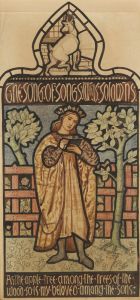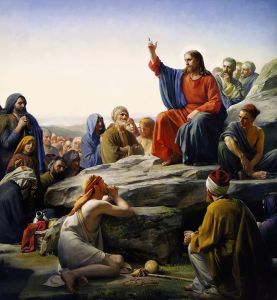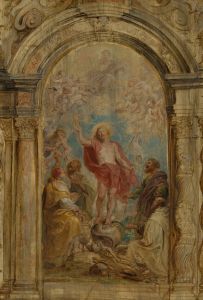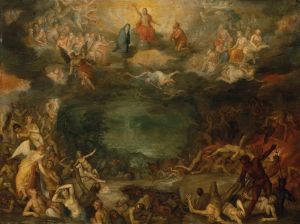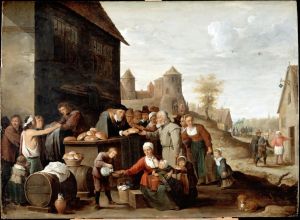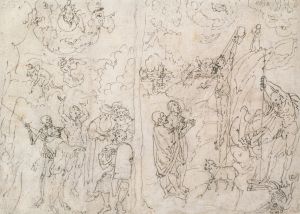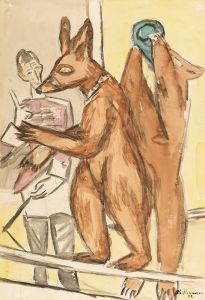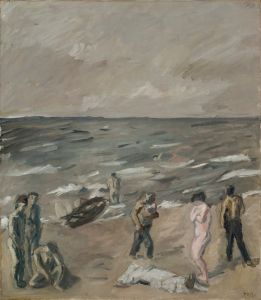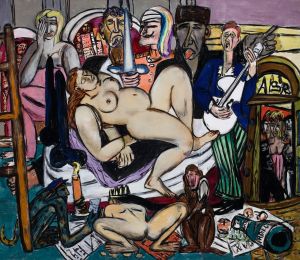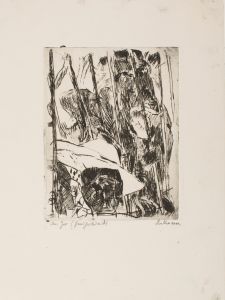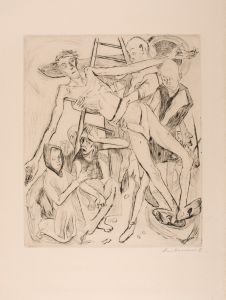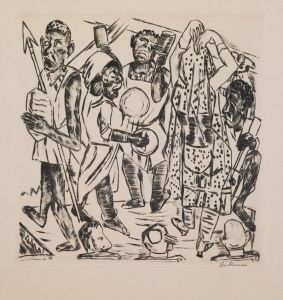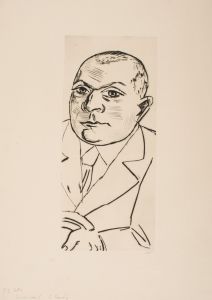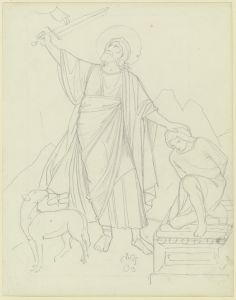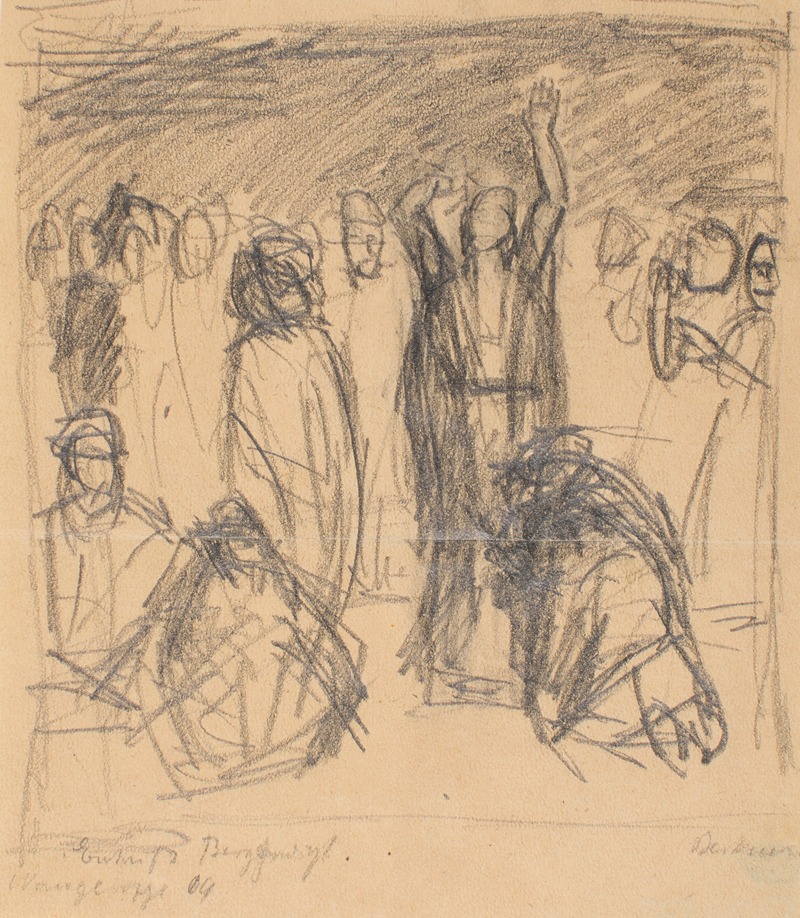
Sketch for Sermon on the Mount
A hand-painted replica of Max Beckmann’s masterpiece Sketch for Sermon on the Mount, meticulously crafted by professional artists to capture the true essence of the original. Each piece is created with museum-quality canvas and rare mineral pigments, carefully painted by experienced artists with delicate brushstrokes and rich, layered colors to perfectly recreate the texture of the original artwork. Unlike machine-printed reproductions, this hand-painted version brings the painting to life, infused with the artist’s emotions and skill in every stroke. Whether for personal collection or home decoration, it instantly elevates the artistic atmosphere of any space.
Max Beckmann's "Sketch for Sermon on the Mount" is a notable work by the German painter, who is widely recognized for his contributions to the Expressionist movement. Beckmann, born in 1884 in Leipzig, Germany, is known for his unique style that often blends elements of Expressionism, New Objectivity, and his own distinctive approach to form and color. His works frequently explore themes of human suffering, existential dread, and the complexities of modern life, reflecting the turbulent times in which he lived.
"Sketch for Sermon on the Mount" is a preparatory work that Beckmann created as part of his exploration of religious and philosophical themes. The Sermon on the Mount, a key discourse by Jesus Christ found in the New Testament, has been a subject of artistic interpretation for centuries. Beckmann's interest in this theme can be seen as part of his broader engagement with spiritual and moral questions, which he often addressed through his art.
This sketch, like many of Beckmann's works, is characterized by bold lines and a dramatic use of space and composition. While the exact date of the sketch is not specified, it is consistent with Beckmann's style during the period when he was increasingly focused on religious and mythological subjects. This period was marked by Beckmann's response to the social and political upheavals of the early 20th century, including the aftermath of World War I and the rise of Nazism in Germany.
Beckmann's art was labeled as "degenerate" by the Nazi regime, leading to his works being removed from German museums and his eventual emigration from Germany in 1937. Despite these challenges, Beckmann continued to produce art that was deeply introspective and often critical of contemporary society.
In "Sketch for Sermon on the Mount," Beckmann likely intended to capture the essence of the biblical sermon, which emphasizes themes such as humility, compassion, and justice. His approach to religious subjects was not conventional; instead, he often infused them with a modern sensibility, reflecting his own philosophical inquiries and the existential concerns of his time.
The sketch serves as a testament to Beckmann's ability to convey complex ideas through a minimalist approach. It highlights his skill in using preparatory works to explore composition and thematic elements before creating a final piece. Although the final painting of this particular sketch is not widely documented, the sketch itself remains an important part of Beckmann's oeuvre, illustrating his process and the depth of his engagement with spiritual themes.
Max Beckmann's legacy as an artist is marked by his ability to transcend traditional boundaries and address the profound questions of his era. "Sketch for Sermon on the Mount" is a reflection of his enduring interest in the intersection of art, spirituality, and human experience, making it a significant work for understanding his artistic journey and the broader context of 20th-century art.





